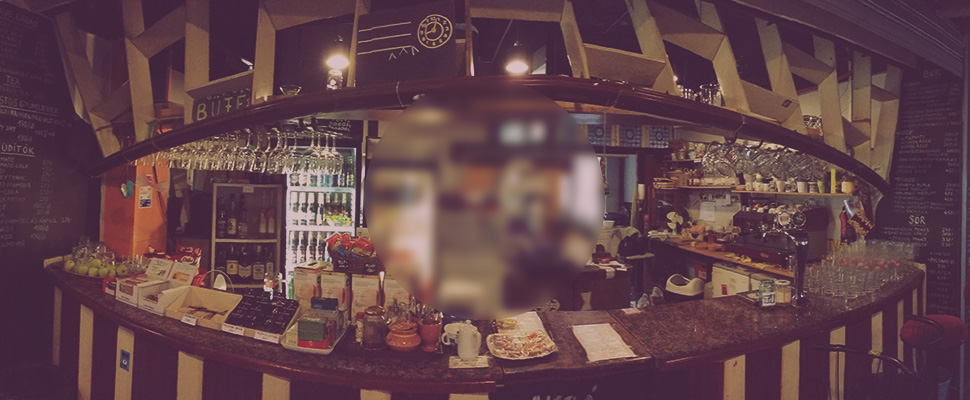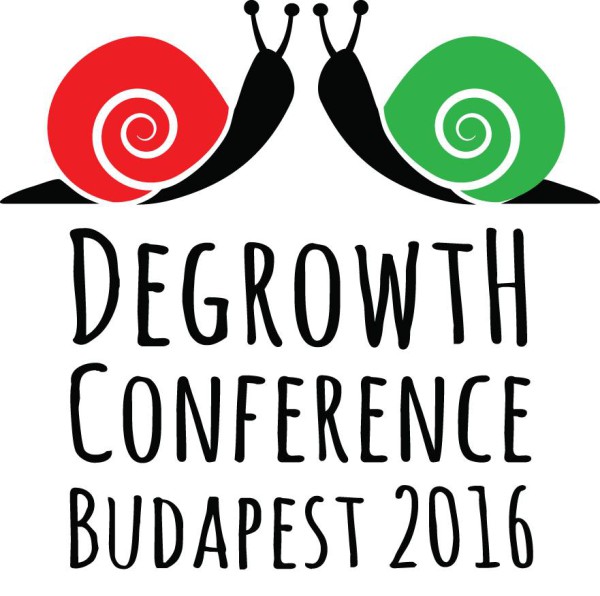Dátum/Idő
08.30. - 09.03. 14:00 - 23:00
Kategória(k)
2016 Budapest International Degrowth Conference
Join us: https://www.facebook.com/budapestdegrowth
Budapest will host the 5th International Degrowth Conference in 2016
After Paris in 2008, Barcelona in 2010, Venice in 2012 and Leipzig in 2014, the next International Conference on Degrowth for Ecological Sustainability and Social Equity will be held in Budapest from the 30th of August to the 3rd of September 2016.
The 5th International Degrowth Conference is a forum to present the latest in global degrowth thought and practice and bring it into dialogue with the specific context of Central-Eastern Europe of the 21st century.
We are continuously facing global and local breaches of environmental limits and failures of social infrastructure required to provide universal human dignity. These challenges are systemic failures, for which we need to conceptually and empirically explore alternatives in lifestyles, production and securing dignity that can be a part of a more resilient system. The current economic, social and political structures are hard to deconstruct and are often presented as the only feasible historical outcomes of humanity. We are told to accept the historical inevitabilities of systemic destruction as if there was no alternative. It is often said that to think of the world decoupled from growth is a political suicide that no classical realpolitik will ever champion.
Even if degrowth struggles are often disconnected, it is hardly arguable that small changes are happening all over the world that can placed into an ever-increasing unified stream that provide us with a picture of a different social reproduction and culture. Pixels in this picture each appear different from the other, each defined by its history, practitioners, thinkers and environment. However, when brought together, these pixels paint the picture of an emergent social and economic construct within environmental limits and lifted from contingent misery.
This conference is one attempt to enable us to see a part of this picture by bringing together some of the pixels. It brings the global thinking trends to a geographical region that has been long side-lined and silenced in the debates of global development. A region in which many of the important conceptual sowers of the degrowth thinking developed and worked. A region rich enough in resources and poor enough in power, reflectively aspirational and historically disillusioned to be able to contemplate the contradictions flickering between existence, justice, growth and development. The conference is another opportunity for the global and the regional, the contemporary and the historical to enter into a dialogue. In September 2016, the global degrowth community and global communities interested in degrowth will pause to reflect, observe, learn and discuss in Budapest. In that they will also enjoy a convivial atmosphere and working environment. They will be joined by numerous communities around the globe sharing a moment with them.
Re-localizing the growth of degrowth movement
Recently the degrowth movement was named the fastest growing movement in the world. Although there is, admittedly, a certain irony in having a growing movement for degrowth, this trend is inspiring. Yet, the next International Conference on Degrowth for Ecological Sustainability and Social Equity, which will be held in Budapest in September 2016, will not strive to represent the global advance of the movement and its popularity. Building on the great success of the last degrowth conference in Leipzig in September 2014, the Budapest conference will strive to work towards convergence and the sharpening of the degrowth concept, showcasing new thinking on degrowth and bringing degrowth to new contexts. The conference will also strive to re-localize the happening and bring the conference to different cities around the world with the combination of participatory IT tools and events in the real world. It will provide a nexus for parallel similar events in different locations around the world through collecting websites, contacts, and repository of outcomes (videos, minutes, publications, artwork).
Degrowth coming home
The Budapest conference will, in a way, bring degrowth back home. Namely, the upcoming conference will take place in a post-socialist region, which was a home to many degrowth thinkers, like Karl Polanyi, Ivan Illich, Nicholas Georgescu-Roegen and André Gorz. The conference will highlight their work, mainly by returning to the Hungarian thinker Karl Polanyi and his work The Great Transformation. Apart from being home to many degrowth thinkers, the post-socialist region faces specific social, economic, environmental and political challenges, often under-researched in degrowth thinking. This is why in the run up to the conference, preparatory events will be organised throughout the region in order to kick-off the degrowth debate in the region.
What the conference will bring
Apart from wishing to be a convivial networking event, the next degrowth conference, which will take place in Budapest in September 2016, will open a platform for
exchanging scientific advances in the degrowth field,
continuing discussions that started in the previous conferences,
building new knowledge and sharpening the degrowth concepts,
establishing a long-term action (e.g. degrowth network, future projects…), and
introducing degrowth to newcomers, especially from the post-socialist region.
Within the plurality and increasing number of events on degrowth, the goal is to develop a clear identity and philosophy for the international conference as a regular and recognizable event, where scholars, civil society and practitioners come together to update each another on their degrowth-related research and activities. The conference is meant to be just one more step on the way, where fruitful, reflective and interesting meetings and discussions will bring together the worldwide degrowth experience and perceptions.
http://budapest.degrowth.org/


